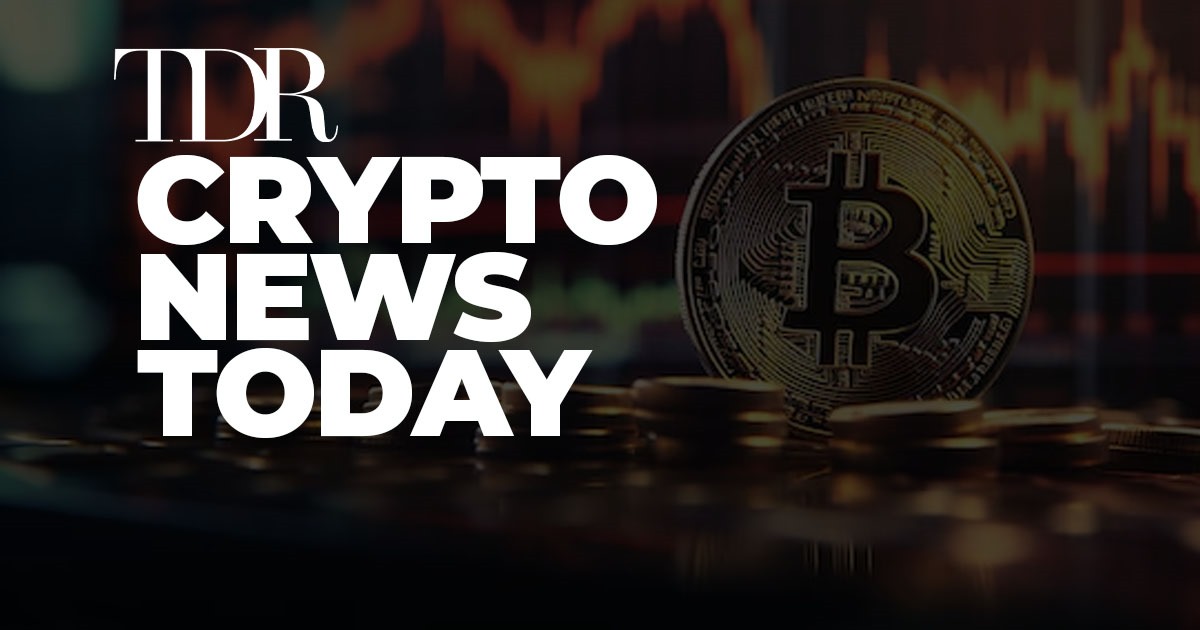Regulation
Tracker: Crypto and Fintech Developments in the Biden Administration
In recent months, there has been a barrage of cryptocurrency news owing to market turbulence and piecemeal regulatory developments. The cryptocurrency market—a $1.7 trillion industry that has grown substantially in the last decade—still suffers significant volatility. Moreover, cryptocurrencies fall into several regulatory gaps as federal regulatory oversight of the market is severely underdeveloped.
Crypto Tracker charts policy developments in cryptocurrencies, stablecoins, central bank digital currencies, and other digital assets from federal, state, and international regulators.
Market Value
Source: CoinGecko
Tracker
1/10/2024 – The SEC paves the way for bitcoin ETFs, opening the market to ordinary investors.
11/21/2023 – Cryptocurrency exchange Binance agrees to pay $4.4bn to settle charges brought by federal agencies after prosecutors claimed that the company aided terrorist networks including Hamas and violated sanctions.
8/29/2023 – A federal court rules in favor of Grayscale Investments in the second significant court loss for the SEC in two months – the court ruling should make it easier to create a cryptocurrency ETF.
8/28/2023 – House Financial Services Chair Patrick McHenry authors a letter to the Federal Reserve questioning its role in overseeing stablecoins.
8/28/2023 – The SEC charges a media company with its first ever NFT enforcement action.
8/25/2023 – The Treasury Department releases proposed regulations governing crypto tax reporting requirements but notes that implementation will not occur until 2025.
8/8/2023 – In the continued absence of Congressional movement on stablecoins, the Fed released further guidance for banks; the expectations set by the Fed were low and notably did not apply to non-bank financial services stablecoin issuers.
8/7/2023 – Payments titan PayPal announces the launch of its own stablecoin, by far the largest financial services firm to do so. Notably, PayPal will not itself issue the stablecoin, leaving that to crypto partner Paxos.
7/31/2023 – A federal judge rejected the legal basis for the Ripple case, refuting the findings and placing the precedent in doubt.
7/26/2023 – The House Financial Services Committee, followed the next day by the House Agriculture Committee, approved holistic crypto legislation giving specific powers to the SEC. A companion bill on stablecoins was shelved.
7/13/2023 – A federal judge ruled that Ripple Lab’s cryptocurrency, XRP, represents a security when sold to institutional investors but not in other cases. This ruling represents a challenge not just to the SEC’s authority but also adds a new wrinkle to the securities vs. commodity debate.
6/9/2023 – A federal judge orders online investment platform Ooki DAO to cease operations, marking the first time a decentralised autonomous organization (DAO) has been found liable for operating an illegal trading platform.
6/6/2023 – The SEC launches a major new offensive against crypto with a series of lawsuits targeting Binance and Coinbase.
6/2/2023 – House Republicans from the Financial Services and Agriculture Committees unveil the proposed text for a new crypto regulatory regime. Under the proposed text significant power would move from the SEC to the CFTC, as it would allow crypto companies an “off ramp” to apply for more lenient CFTC scrutiny.
5/23/2023 – FINRA approve Prometheum Ember Capital’s bid to custody crypto securities, making it the first SEC registered broker-dealer to be able to do so.
4/24/2023 – Cryptocurrency exchange Coinbase sues the SEC in an attempt to get the agency to commit to the creation of a suite of rules for the digital asset market.
4/19/2023 – The House Financial Services Committee subcommittee on digital assets holds a hearing on stablecoins and the need for stablecoin legislation. In advance of the hearing the Committee re-publishes draft stablecoin legislation from 2022 unchanged despite criticism it received at the time.
4/18/2023 – SEC Chair Gary Gensler testifies before the House Financial Services Committee, with Republicans accusing Gensler of regulation by enforcement and of pushing crypto business overseas.
4/17/2023 – The SEC charges crypto exchange Bittrex with operating unregistered financial entities.
4/12/2023 – The Small Business Administration finalises a rule that would open up its flagship 7a lending program to fintechs for the first time.
3/27/2023 – The SEC charges Binance, the world’s largest crypto exchange, and its CEO with violating derivatives trading and registration rules.
3/23/2023 – The SEC charges cryptocurrency entrepreneur Justin Sun with a range of violations including running a ring of celebrity endorsements featuring Lindsay Lohan among others.
3/9/2023 – The House Financial Services crypto oversight subcommittee meets for the first time in a hearing entitled “Coincidence or Coordinated? The Administration’s Attack on the Digital Asset Ecosystem”.
3/9/2023 – New York Attorney General Tish James sues crypto exchange KuCoin for operating as an unlicensed broker; notably the suit alleges that Ether is a security, not a commodity, going against the current trend for federal policymakers.
3/1/2023 – The Treasury Department announces the creation of an inter-agency effort to explore the possibility of a digital dollar backed by the U.S. government.
2/17/2023 – Wyoming crypto firm Custodia sues the Fed Reserve after its Kansas branch rejects its application for a Fed master account and access to payment rails.
1/20/2023 – Crypto brokerage Genesis files for bankruptcy as the continued effects of the fall of FTX ripple through the industry.
1/19/2023 – Crypto lending platform Nexo ordered to pay $45m to settle securities law charges by the SEC.
1/18/2023 – The Justice Department file money laundering charges against cryptocurrency exchange Bitzlato and its founder.
1/12/2023 – House Financial Services Chair Patrick McHenry unveils a new crypto oversight committee and names its chair, Rep. French Hill.
1/4/2023 – Coinbase fined $50m by the State of New York for compliance failings.
12/21/2022 – Outgoing Senator Pat Toomey introduces a bill to regulate stablecoins. The proposed legislation would confirm that stablecoins are not securities and are the responsibility of neither the SEC nor the CFTC; instead, the OCC would oversee a licensing process.
12/15/2022 – The New York Department of Financial Services releases customer protection guidance aimed at banks seeking to enter the crypto markets.
12/13/2022 –Senators Warren and Marshall introduce a bipartisan bill that would require crypto firms to comply with anti-terrorism and anti-money laundering regulations.
12/13/2022 – Shortly before his expected testimony before the House Financial Services Committee, FTX founder Sam Bankman-Fried is arrested by Bahamian police. It is expected that he will be extradited to the U.S. to stand charges for fraud.
11/16/2022 – Crypto lending platform BlockFi files for bankruptcy as the collapse of FTX continues to ripple through the industry.
11/16/2022 – Genesis Global Trading, an institutional lender, and Gemini, a crypto trading platform, suspend operations as FTX contagion destabilizes the crypto ecosystem.
11/16/2022 – Senator Kristen Gillibrand announces that she plans to introduce a stablecoin bill before the end of 2022, along with Senators Lummis and Toomey.
11/16/2022 – Fed Vice Chair for Supervision Michael Barr, testifying before the House Financial Services Committee, applauds Congressional efforts to regulate crypto but notes that any cryptocurrency issuers that refer to the USD should be brought under the direct supervision of the Fed.
11/16/2022 – Treasury releases a report noting that while fintechs and other nontraditional lenders make financial services more competitive, they also make it vastly more complicated and are not subject to traditional safeguards.
11/15/2022 – New York Fed launches a digital dollar pilot to examine the feasibility of a shared digital ledger.
11/11/2022 – California regulators suspend BlockFi from operating in the state after it pauses withdrawals in an effort to limit FTX contagion.
11/11/2022 – Cryptocurrency exchange FTX files for bankruptcy in Delaware, wiping billions of dollars of value from FTX, its billionaire founder Sam Bankman-Fried, and broader crypto markets. For more on this development, see The Collapse of FTX.
10/18/2022 –European Commission weighs a potential ban on crypto mining to conserve energy.
10/11/2022 – Treasury fines crypto exchange Bittrex over $53m to settle charges that the exchange violated sanctions and anti-money laundering rules between 2014 and 2018.
10/10/2022 – In advance of a series of meetings of the G20, the Financial Stability Board (FSB) publishes a report “Regulation, Supervision and Oversight of Crypto-Asset Activities and Markets“. The report included nine recommendations relating to supervision, information exchange, governance and disclosures.
10/10/2022 – The Organisation for Economic Cooperation and Development (OECD), an international regulatory standards-setting body, releases measures that would, if adopted, require crypto exchanges to collect and report data on digital asset holders to the relevant tax authorities.
9/16/2022 – FSOC releases a sweeping crypto report, warning that crypto represents a possible systemic risk if not contained by appropriate regulation. The report is curious for its redundancy – it proposes that Congress pass legislation giving agencies regulatory powers over digital marketplaces and over stablecoins. Both measures are already under way. The FSOC also recommends continued enforcement of the existing regulatory structure without demonstrating that existing enforcement is lacking – and further empowering agencies to regulate by enforcement.
9/16/2022 – The Federal Reserve Board of New York release a thoughtful and nuanced review as to the financial stability risks of digital assets, noting that digital market shocks have “limited spillover” into traditional financial markets with limited interconnections.
9/16/2022 – Celebrity Kim Kardashian will pay $1.26m to settle charges from the SEC that she promoted the EthereumMax cryptocurrency (no relation to Ethereum) without disclosing that she was being paid to do so.
9/29/2022 – Senator Toomey, Ranking Member of the United States Senate Committee On Banking, Housing, and Urban Affairs, introduces a bill that would allow 401(k) holders to invest in alternative assets including real estate, private equity, and digital assets. These investments are not currently specifically prohibited, but the lack of clarity is believed to have a “chilling” affect on adoption.
9/26/2022 – Eight states sue cryptocurrency lending company Nexo for illegally offering securities to investors.
9/23/2022 – California governor Gavin Newsom rejected a proposed licensing system for cryptocurrency trading platforms, noting that the proposal would both be too early by reference to the state’s research and also a significant budgetary cost. Industry groups had criticized the measure and existing systems like it (most obviously in the state of New York) for being costly and stunting innovation, with critics of the California measure noting that it would effectively outlaw all crypto in California overnight.
9/23/2022 – CFTC files its first enforcement action against a decentralized autonomous organization (DAO), Ooki DAO, for operating an illegal commodities trading platform in addition to other money-laundering charges. In filing these charges the CFTC may however have created a novel form of unlimited liability – anyone who has every held tokens or voted in the DAO may now be subject to CFTC enforcement actions.
9/16/2022 – The White House releases a series of federal reports on crypto commissioned by the March executive order. The report findings are received by the crypto industry with significant dismay. With very little in the way of concrete policy recommendations or interagency communication, the reports go to significant lengths to stress the risks the crypto industry poses. The reports kick the can down the road by ordering yet more investigations and research, but go one step worse by empowering the agencies to continue the aggressive prosecution actions that the crypto industry loathes as “regulation by enforcement”.
9/15/2022 – CFTC chair Rostin Behnam testifies before the Senate Agricultural Committee on the Stabenow-Boozman bill that would allocate the vast majority of crypto regulation to the CFTC.
9/15/2022 – Crypto titan Ethereum completes “The Merge“, an internal project shifting the entire technological basis underpinning the second largest cryptocurrency. By changing Ethereum’s validation system from “proof-of-work” to “proof-of-stake” the firm reportedly will cut its energy consumption by 99.5% percent. Subsequent comments from the SEC’s Gary Gensler indicated that as a result of the change the entire ethereum universe becomes a security and should be regulated by the SEC.
9/8/2022 – Crypto exchange Coinbase announces intention to financially back a federal lawsuit against the Treasury Department arguing that the department acted beyond its powers in sanctioning mixing service Tornado Cash.
9/8/2022 – In a speech SEC Chair Gary Gensler sets out his most strident comments to date identifying crypto assets as securities.
9/8/2022 – The first of a series of agency reports on crypto as directed by the White House executive order in March has been made available. The report focuses on the environmental toll of crypto and in particular crypto mining. Increased greenhouse gases, water usage, power grid usage and even noise pollution are all cited. The White House is expected to order the EPA and other agencies to develop industry benchmarks.
8/19/2022 – The FDIC sends five cease-and-desist letters to five crypto companies including crypto exchange FTX US, led by Sam Bankman-Fried. The letters continued the FDIC’s assault against companies falsely linking themselves to the FDIC or claiming FDIC insurance where that relationship does not exist.
8/16/2022 – The Federal Reserve instructs banks to notify their regulators before beginning any crypto-related activity, noting that these activities might not be “legally permissible”.
8/15/2022 – Senator Pat Toomey, Ranking Member of the Senate Banking, Housing, and Urban Affairs Committee, sends a letter to Director Martin Gruenberg of the FDIC accusing the agency of “improperly” using agency powers to discourage banks from offering cryptocurrency services.
8/15/2022 – Federal Reserve finalizes its guidelines for how it will evaluate fintech applications to the Fed payment rails – giving these firms a deposit account at the Fed.
8/11/2022 –Investment titan Blackrock launches an investment trust tracking the price of Bitcoin, five years after Blackrock chairman and CEO Larry Fink called Bitcoin an “index of money laundering“.
8/8/2022 – The Treasury Department sanctions notorious crypto “mixer” Tornado Cash (a mixer expedites the process of laundering cryptocurrencies by “mixing” legal crypto assets with illegal to obscure crypto currency origins). Tornado Cash has been in particular use by North Korean hackers, who are said to have laundered $455 million of Ethereum in March. Critics within the crypto industry have pushed back on OFAC’s decision in this case to blacklist code, rather than specific individuals or businesses.
8/3/2022 – Senators Toomey, Warner, Lummis, Sinema, and Portman introduce legislation seeking to clarify digital asset reporting requirements of the Bipartisan Infrastructure Framework (BIF). In particular, the Senators are seeking to exclude crypto mining or wallet providers from the broad definition of ‘brokers’ in the BIF with onerous reporting requirements.
8/3/2022 – Senators Stabenow and Boozman introduce a bipartisan bill that would centralize the CFTC as the primary regulator of crypto markets. While the CFTC currently has jurisdiction over the derivatives aspects of crypto markets, most notably bitcoin and Ethereum, the bill would make expand the CFTC’s authorities to all aspects of both, essentially codifying the instruments as commodities.
8/3/2022 – New York Department of Financial Services levies a $30m fine on crypto trader Robinhood for “significant failures in the areas of bank secrecy act/anti money laundering”.
8/2/2022 – SEC announces new enforcement actions against “blockchain networking platform” Forsage in what the agency described as a “textbook pyramid and Ponzi scheme”.
7/29/2022 – The FDIC has warned banks not to partner with crypto firms that include deceptive advertising, following a cease-and-desist notice to crypto lending business Voyager Digital. Voyager Digital had made assurances in marketing materials that their deposits were FDIC insured when this was not the case.
7/26/2022 – Senators Toomey and Sinema introduce a bipartisan bill seeking to make virtual currencies more attractive for the purposes of everyday purchases by exempting transactions of less than $50 from taxation.
7/21/2022 – Department of Justice announces the arrest of three people in connection with the “first ever cryptocurrency insider trading scheme” involving staff at crypto exchange Coinbase.
7/12/2022 – Office for Financial Research posts working paper examining the implications of a central bank digital currency on the stability of the broader banking system.
7/8/2022 – Major stablecoin backer Paxos builds on what is already a significant and voluntary disclosure regime by becoming the first stablecoin issuer to disclose full monthly reserve holdings backing its stablecoins.
7/7/2022 – Treasury releases fact sheet setting out how the U.S. would work with foreign governments on digital assets as directed by the President’s Executive Order.
7/6/2022 – Crypto brokerage Voyager files for bankruptcy as the crypto market continues to face significant volatility and a liquidity crisis.
7/1/2022 – European Parliament finalizes landmark crypto asset bill, dubbed MiCA. Originally drafted in response to Facebook’s proposed stablecoin, the bill is expected to provide the legal certainty required for digital asset firms to operate in confidence despite the relatively onerous nature of the new restrictions.
6/30/2022 – Supreme Court employs the “major questions doctrine” to limit the EPA’s authority to regulate power-plants in a move seen by industry as highly suggestive that significant new expansions in any agency regulation outside of a specific Act of Congress may not be viable.
6/29/2022 – Crypto hedge fund and significant industry investor Three Arrows ordered to liquidate its assets by court after lawsuit following failure to repay debts.
6/22/2022 – Representative Jim Himes releases white paper providing a possible legislation roadmap towards the development of a central bank digital currency.
6/13/2022 – Crypto markets suffer shock as lender Celsius Network announces it will halt withdrawals amid regulator scrutiny.
6/10/2022 – Deputy Treasury Secretary Wally Adeyemo indicates that Treasury will crack down on cryptocurrency wallets that allow consumers to buy and sell digital assets anonymously.
6/8/2022 – New York State Department of Financial Services issues new stablecoin guidance following Terra USD collapse.
6/7/2022 – Senators Cynthia Lummis and Kirsten Gillibrand release a bipartisan proposal seeking to establish a complete regulatory framework for currencies. The proposal puts the Commodity Futures Trading Commission (CFTC) front and center, which suggests that cryptocurrencies should be considered commodities rather than securities—a view favorable to industry.
6/2/2022 – New York lawmakers pass the first limited moratorium on digital currency mining at fossil fuel plants.
5/26/2022 – House Financial Services Committee holds hearing on central bank digital currencies (CBDCs); presses Fed Vice Chair Lael Brainard to not proceed without congressional legislation.
5/23/2022 – A Fed survey indicates that the majority of Americans who hold cryptocurrencies and other digital assets are wealthy and banked.
5/18/2022 – Securities and Exchange Commission (SEC) Chair Gary Gensler calls for an increased budget for the SEC to combat cryptocurrency crime.
5/17/2022 – SEC Chair Gensler calls for enhanced investor protections following a market slump.
5/11/2022 – Bitcoin loses 6 percent of its value in a major shock to the cryptocurrency market. TerraUSD cryptocurrency collapses, wiping out $45 million in value in a few days.
5/6/2022 – SEC fines computer hardware maker NVIDIA $5.5 million for failing to disclose sales linked to cryptocurrency mining.
5/3/2022 – SEC nearly doubles the size of its cryptocurrency enforcement unit.
4/25/2022 – Consumer Financial Protection Bureau (CFPB) announces it will rely on a “dormant” authority to expand its reach to nonbanks and fintechs.
4/25/2022 – Top European Central Bank (ECB) official remarks that crypto assets should be taxed, especially if they have a high carbon footprint.
4/22/2022 – House Democrats request Environmental Protection Agency investigate crypto mining impacts.
4/7/2022 – FDIC urges banks to consult before providing cryptocurrency services.
4/7/2022 – Treasury Secretary Janet Yellen in remarks that it is “too early to tell” if cryptocurrencies or digital asset technology will live up to promise.
4/6/2022 – Sen. Pat Toomey releases discussion draft that would create a regulatory framework for stablecoins centered on the Office of the Comptroller of the Currency (OCC).
4/4/2022 – SEC Chair Gensler pushes for SEC and CFTC to provide joint oversight of cryptocurrency exchanges.
3/31/2022 – SEC issues new accounting guidance for cryptocurrency exchanges.
3/9/2022 – Biden Administration releases executive order embarking on a whole-of-government, comprehensive approach to the regulation of cryptocurrencies and other digital assets.
2/22/2022 – California lawmakers follow Wyoming and Arizona in proposing legislation to allow its citizens to pay taxes in cryptocurrencies.
2/17/2022 – A bipartisan group of Wyoming lawmakers propose legislation to make their state the first to have a state-backed digital token.
2/17/2022 – Department of Justice adds staff dedicated to addressing ransomware and other crypto-related financial crimes following its October announcement of a National Cryptocurrency Enforcement Team.
2/16/2022 – Consortium of cryptocurrency exchanges and trading platforms launches trade group to standardize approach to money laundering and compliance.
2/15/2022 –Under Secretary of the Treasury for Domestic Finance Nellie Liang tells Congress that federal regulators do not have the authority to regulate stablecoins without congressional legislation.
2/15/2022 – Rep. Josh Gottheimer releases draft stablecoin bill setting up a regulatory framework.
2/14/2022 – SEC fines cryptocurrency lender BlockFi $100 million in what the agency calls a first– of– its– kind crackdown on digital asset trading.
2/9/2022 – Senate Agricultural Committee pushes for more CFTC oversight of cryptocurrency markets; CFTC notes that its cyber defenses are poorly prepared to defend against a cyberattack.
2/8/2022 – House Financial Services Committee holds hearing on stablecoins, demonstrating that lawmakers are not advanced in cryptocurrency or digital asset legislation.
2/3/2022 – Boston Fed releases research on the possible technological underpinnings of a CBDC, publishing open-source code.
1/31/2022 – Wyoming and Arizona advance proposals that would allow taxpayers to make tax payments in cryptocurrencies.
1/31/2022 – Facebook sells controversial cryptocurrency, first pitched as Libra and later rebranded as Diem.
1/24/2022 – Rep. Patrick McHenry implores House Financial Services Chair Rep. Maxine Waters to accelerate legislation on cryptocurrency and digital asset rules before federal agencies decide to act.
1/20/2022 – House Energy and Commerce Committee holds hearing on the climate impacts of crypto mining.
1/20/2022 – Fed issues initial paper on a U.S. digital currency and requests public feedback in what is seen as the first definitive step taken by the Fed on a CBDC.
1/12/2022 – House Rep. Tom Emmer introduces a bill that would prevent the Fed from issuing a CBDC.
1/11/2022– Fed Chair Jerome Powell indicates to the Senate Banking Committee that he is open to giving crypto banks access to Fed payment rails and Fed accounts.
1/11/2022 – The International Monetary Fund (IMF) warns that Bitcoin and other cryptocurrencies can no longer provide a hedge against investments due to a significant increase in the correlation between digital assets and traditional asset classes.
12/17/2021 – FSOC urges Congress to act on cryptocurrency regulation; points to risks but does not provide timeline, noting that if Congress does not act it will do so itself.
12/14/2021 – Senate Banking Committee holds hearing on risks posed by stablecoins.
12/9/2021 – Senior IMF officials stress need for global cryptocurrency regulation before the market destabilizes economies.
12/8/2021 – Cryptocurrency CEOs appear for the first time before House Financial Services Committee, seeking transparent legislative framework.
11/23/2021 – OCC reverses Trump Administration guidance, emphasizing that banks must seek permission before engaging in crypto-related activities on behalf of their clients.
11/4/2021 – Incoming New York City mayor Eric Adams vows to take first three paychecks in Bitcoin.
11/2/2021 – In direct opposition to comments made by the CFTC, SEC Chair Gensler notes that most cryptocurrencies and digital assets should fall under the jurisdiction of the SEC, with only a “really, really small number” appropriately treated as commodities.
11/1/2021 – Treasury and other federal agencies release highly anticipated report on stablecoins, noting that stablecoin issuers should be treated as banks and calling on Congress to legislate this.
10/27/2021 – Acting CFTC Chair Rostin Behnam urges Congress to expand the CFTC’s authority to regulate digital assets.
10/15/2021 – CFTC orders cryptocurrencies Tether and Bitfinex to pay $42.5 million in fines for misleading statements that the currencies were backed by the U.S. dollar.
10/12/2021 – Former Boston Fed Chief Eric Rosengren notes that the policy questions posed by a CBDC are far more complex than the technical challenges; notes, however, that any U.S. CBDC is unlikely to be based on blockchain.
10/06/2021 – The International Organization of Securities Commissions releases in-depth report considering the systemic risk posed by stablecoins.
10/1/2021 – IMF calls for global standards to reduce the risks posed by cryptocurrencies.
9/30/2021 – The Bank for International Settlements sets out framework for a CBDC that will minimize the necessary but controllable damage to bank lending and profitability.
9/21/2021 – Acting Comptroller of the Currency Michael Hsu publicly pushes back on claims by the cryptocurrency industry that crypto can reduce financial inequality.
9/20/2021 – Cryptocurrency exchange Coinbase drops plans to launch product, alleging that the SEC threatened to sue to prevent the issue.
9/16/2021 – Sen. Maggie Hassan calls on federal agencies in letter to Attorney General Garland to improve the policing of crypto crimes.
9/14/2021 – SEC Chair Gensler testifies before the Senate on crypto regulation, notes that the Supreme Court has provided sufficient precedent to back the idea that some cryptocurrencies
are securities and others are commodities.
8/4/2021 – Cryptocurrency tax provisions, a very small part of the $1 trillion infrastructure bill, prove controversial enough to threaten the entire bill; an eventual amendment to the original text infuriates industry.
8/3/2021 – SEC Chair Gensler notes at a conference that further congressional legislation is required to police the “Wild West” of the cryptocurrency market.
7/19/2021 – Treasury Secretary Yellen urges federal regulators to “act quickly” to regulate stablecoins.
7/14/2021 – ECB announces the commencement of a 24 month digital euro experiment.
7/13/2021 – Fed, the Federal Deposit Insurance Corporation, and OCC request comment on guidance setting out the acceptable parameters for bank-fintech partnerships.
6/8/2021 – Internal Revenue Service chief Charles Rettig requests additional authority from Congress to police cryptocurrency.
6/3/2021 – Federal appeals court reverses a previous ruling that held that the OCC had exceeded its authority when it started to accept bank charter applications from fintechs.
5/19/2021 – Senate Banking Chair Sherrod Brown urges the OCC against granting federal charters to cryptocurrency fintechs.
5/18/2021 – OCC Acting Chair Hsu notes in congressional testimony the challenges facing federal regulators given the lack of a unified federal strategy for dealing with the risks posed by fintech developments, including artificial intelligence and blockchain.
2/23/2021 – Fed Chair Powell notes that a digital dollar is a “very high priority” for the Fed.
1/21/2021 – European Commission announces intent to introduce a digital euro within five years.
Regulation
South Korea Moves to Delay Cryptocurrency Tax Until 2028 Amid Market Concerns

South Korean lawmakers have proposed a bill to delay the tax on cryptocurrency earnings until 2028.
The ruling political party proposed the bill on July 12, citing current negative sentiment around the cryptocurrency sector as the reason for the extension. declared:
“With investor sentiment toward virtual assets deteriorating, some argue that hasty taxation of virtual assets is not desirable at this time, as virtual assets are high-risk assets with a higher risk of loss than stocks, and if income tax were also imposed, it is expected that most investors would abandon the market.”
South Korea had originally planned to implement its cryptocurrency earnings tax on January 1, 2025. However, if the new bill is passed, the implementation date will be moved to January 1, 2028. The subcommittee met on July 15 to continue the review.
The move is in line with President Yoon Suk-yeol’s campaign promisesHe assured voters that he would extend the cryptocurrency earnings tax during the last general election if elected. His administration aims to create a clear regulatory framework before implementing the tax.
However, the Ministry of Economy and Finance has not yet decided on the postponement. The ministry plans to announce new amendments to the fiscal policy by the end of the month.
“No decision has been made on further postponing the implementation of taxation of income from virtual activities,” a ministry spokesperson said. She said.
South Korea’s Thriving Cryptocurrency Industry
South Korea is one of the fastest-growing countries in the world in adopting this emerging sector.
In the first quarter of this year, blockchain platform Kaiko reported that the Asian country’s national currency, the Won, emerged as the leading currency for global cryptocurrency trading, with a cumulative trading volume of $456 billion across centralized exchanges.
Furthermore, the Asian country is a shining light for its proactivity approach to cryptocurrency regulationSouth Korea has implemented different rules designed to improve consumer protection standards for cryptocurrency users in its jurisdiction.
Latest stories from South Korea
Regulation
ESAs consult on guidelines for cryptocurrency regulation

THE European Supervisory Authoritiesincluding EBA, EIPA and ESMA, have published a consultation paper on guidelines under the Markets in Cryptocurrencies Regulation (MiCAR).
In doing so, the ESAs intended to develop templates for legal explanations and opinions regarding the classification of cryptocurrencies along with a standardized assessment to support a common approach to classification. In addition, the current move is intended to assist market participants and supervisors in accommodating a standardized test while receiving legal explanations and opinions that provide descriptions of the regulatory classification of cryptocurrencies in different cases. Among them, the ESAs mention:
-
Asset-Referenced Tokens (ART), whose white paper for their issuance must be accompanied by a legal opinion that highlights the classification of the crypto-asset, especially with regard to the fact that it is not an electronic money token (EMT) or a crypto-asset that could be excluded from the scope of MiCAR;
-
Cryptocurrencies that are not considered ART or EMT under the Regulation, for which the white paper must be accompanied by an explanation of the classification of the cryptocurrency, in particular information that is not an EMT, ART or a cryptocurrency are excluded from the scope of MiCAR.
As part of the press release, the ESAs mention that the consultation paper can be submitted directly from the consultation page, with a deadline for submissions of 12 October 2024. After holding a virtual public hearing on the consultation paper on 23 September 2023, the authorities are ready to publish all contributions, unless otherwise requested.
Background
In an effort to establish a framework for the provision of crypto-asset services, MiCAR develops regimes to regulate the issuance, supply to the public and admission to trading of EMT, ART and other crypto-assets. The draft was created under Article 97(1) of MiCAR, which requires authorities to jointly provide by 30 December 2024 the Guidelines pursuant to Article 16 of the ESA Regulations (EU Regulation) No. 1093/2010 Regulation 1094/2010, Regulation 1095/2010) to specify the content and form of the explanation accompanying the white paper on crypto-assets referred to in Article 8(4) and the legal opinions on the qualification of asset-referenced tokens (ARTs) referred to in Article 17(1), point (b)(ii) and Article 18(2), point (e) of MiCAR.
In addition, ESAs are required to include in the Guidelines a model for explanation and opinion and a standardized test for the classification of cryptocurrencies. At the time of the announcement, this was the only joint policy mandate of ESAs developed under MiCAR.
Regulation
Cryptocurrency News Today – July 15, 2024

Welcome to “Crypto News Today”, your daily digest of the cryptocurrency industry.
Bitcoin ETFs surge amid price recovery, market fluctuations
Bitcoin ETFs have seen their best weekly inflows since May, with $882 million in the week ending July 11. Bitcoin’s price has recovered to around $62,000, up 15% from its recent low, reflecting renewed investor interest and market optimism. To learn more, visit the TDR website!
Bitcoin Surpasses Leveraged ETFs
Bitcoin’s price has outperformed risky leveraged ETFs like BITX and BITU, demonstrating the cryptocurrency’s relative stability in a volatile market. Investors are increasingly favoring direct Bitcoin holdings over complex financial products.
SEC Closes Investigation into Hiro Systems
The SEC has concluded its three-year investigation into Stacks developer Hiro Systems without taking any enforcement action. The move brings relief to the company and its shareholders, potentially increasing confidence in the Stacks ecosystem.
Genesis Transfers 760 Million BTC to Coinbase
Amid a market sell-off, Genesis advanced $760 million in Bitcoin to Coinbase. The large transfer has raised speculation about potential trading strategies or liquidity by the digital asset company.
JP Morgan-Backed Partior Closes $60M Series B
JP Morgan-backed blockchain firm Partior has successfully closed a $60 million Series B funding round. The funds will support Partior’s mission to simplify cross-border payments and advance blockchain-based financial solutions.
Cryptocurrencies Become The Theme of 2024
Cryptocurrencies have emerged as a key issue in the 2024 political landscape, with parties and candidates debating regulation, innovation, and the future of digital currencies. This trend underscores the growing importance of cryptocurrencies in economic and political discussions.
Read more cryptocurrency news on the TDR website!
Regulation
How Cryptocurrency Firms Are Capitalizing on MiCA’s Bumpy Launch – DL News

- The MiCA licensing regime will come into force at the end of December.
- Levels of severity vary from country to country.
- This will create opportunities for companies to engage.
Stablecoin laws have already come into force, but EU countries are rushing to comply with the rest of the Union’s new cryptocurrency regulation before the deadline.
The EU regulatory framework requires cryptocurrency businesses such as exchanges to choose a country in which to apply for a license. In practice, countries will inevitably have different levels of stringency.
The Markets in Crypto-Assets regulation is designed to introduce a level playing field across the EU, as national regulators will have to adhere to the same set of standards. Once licensed, crypto-asset service providers, or CASPs, can move their services anywhere in the bloc.
Additionally, countries are allowed to opt for longer transition periods before enforcing the MiCA rules. This is known as the grandfathering period.
All of this could call into question the level of compliance in some countries.
— Ernest Lima, XReg Consulting
That creates opportunities for cryptocurrency firms to seek out jurisdictions with lighter rules and less enforcement, said Ernest Lim, a partner at consultancy XReg. DL News.
“Cryptocurrency companies registered or licensed in different EU member states may be subject to different requirements” between January 2025 and July 2026, Lima said.
Due to time and capacity constraints, some local regulators may have difficulty processing applications in time for the deadline, he added.
“Some may not even have sufficient resources to adequately supervise licensed CASPs,” Lima said.
Join the community to receive our latest stories and updates
“All of this could call into question the level of compliance in some countries.”
Companies are already exploiting the patchy way MiCA regulations are enforced in the EU, in a practice known as regulatory arbitrage, Lima said.
Just the beginning
MiCA’s stablecoin laws went into effect on July 1st, marking the start of the launch.
The next stage is the MiCA licensing regime for cryptocurrency businesses, including exchanges, custodians and investment firms, which will come into force on December 30.
Although the new rules will be stricter, CASPs registered in one country will be able to offer their services throughout the EU27 under the MiCA ‘passporting’ provisions.
Some countries with simpler registration requirements already have significant numbers of VASPs on their registers.
Lima said he expects the number of CASPs in Europe to consolidate significantly, especially in those countries.
In countries with more flexible regulators, companies can benefit from a relatively simple registration process to enter Europe.
According to XReg data, for example, Lithuania has 588 VASPs, while Germany has 12.
Transition period
The MiCA safeguard period will also impact where companies apply for licenses, Lima said.
The grandfathering period is a transition starting on December 30, during which companies can switch to the more stringent CASP regime.
Countries can grant cryptocurrency firms up to 18 additional months from December 30, although the EU securities watchdog recommends a 12-month safeguard period.
In assessing how much time to give companies to transition to the CASP regime, countries will have considered “how prepared they are internally to process applications, the gap between MiCA and their current regime, and the number of companies currently registered in their jurisdictions, all of which influence the workload associated with the transition,” Lima said.
Some countries have announced their transition, others have not, he added.
Among those who have announced:
- France will allow a ramp-up period of 18 months. The country already has a regime similar to MiCA in place.
- Many countries, including Ireland, Germany, Spain and Austria, are opting for the recommended 12-month transition.
- Lithuania, which has very lax AML requirements and a large number of registered VASPs, has been at a standstill for five months.
- The Netherlands will implement the MiCA regime on 30 December and is already accepting applications.
Strategie
Lima said that cryptocurrency companies are evaluating different strategies to take advantage of this uneven distribution.
Some companies are aiming to comply as soon as possible, by December 30, which means they will be the first to avail themselves of passporting rights and gain market share in the EU.
“Others are opting to file multiple applications in EU jurisdictions,” he said.
This approach allows a firm to benefit from a transition period in a trusted jurisdiction while working on a MiCA application.
However, he said that time was running out: local regulators were preparing to start the MiCA application process.
“Soon there will be no more time to process new applications.”
Lima said some companies have no intention of ever complying with MiCA.
Instead, they chose to continue working as long as possible before closing their businesses for good.
Contact the author at joanna@dlnews.com.
-

 News1 year ago
News1 year ago“Captain Tsubasa – RIVALS” launches on Oasys Blockchain
-

 Ethereum1 year ago
Ethereum1 year agoComment deux frères auraient dérobé 25 millions de dollars lors d’un braquage d’Ethereum de 12 secondes • The Register
-

 News1 year ago
News1 year agoSolana ranks the fastest blockchain in the world, surpassing Ethereum, Polygon ⋆ ZyCrypto
-

 Videos1 year ago
Videos1 year agoHistoric steps for US cryptocurrencies! With a shocking majority vote!🚨
-

 Videos1 year ago
Videos1 year agoIs Emorya the next gem💎 of this Bitcoin bull run?
-

 News1 year ago
News1 year agoSolana Surpasses Ethereum and Polygon as the Fastest Blockchain ⋆ ZyCrypto
-

 Videos1 year ago
Videos1 year agoNexus Chain – Ethereum L2 with the GREATEST Potential?
-

 News1 year ago
News1 year agoFnality, HQLAᵡ aims to launch blockchain intraday repositories this year – Ledger Insights
-

 Ethereum1 year ago
Ethereum1 year agoScaling Ethereum with L2s damaged its Tokenomics. Is it possible to repair it?
-

 Regulation1 year ago
Regulation1 year agoFinancial Intelligence Unit imposes ₹18.82 crore fine on cryptocurrency exchange Binance for violating anti-money laundering norms
-

 Bitcoin1 year ago
Bitcoin1 year agoBitcoin Drops to $60K, Threatening to Derail Prices of Ether, Solana, XRP, Dogecoin, and Shiba Inu ⋆ ZyCrypto
-

 News1 year ago
News1 year agoSendBlocks Debuts with Major Support to Improve Blockchain Data Management










